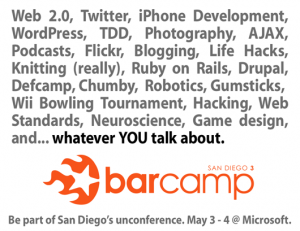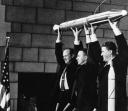 I was searching for the term “technomagic” (long story) and came across a post about Clarke’s quote: “Any sufficiently advanced technology is indistinguishable from magic.” It’s a favorite of mine, and of hers as well:
I was searching for the term “technomagic” (long story) and came across a post about Clarke’s quote: “Any sufficiently advanced technology is indistinguishable from magic.” It’s a favorite of mine, and of hers as well:
And it is a quote that I’ve always loved. But the more I look at it and think about it, I have to wonder if it still applies to our world.
I’m watching the Transformers movie while writing this. Huge robots from outer space coming to Earth. Does anyone think they are magic? Of course not.
“I bought a car. Turned out to be an alien robot. Who knew?”, says a nonchalant Sam Witwicky.
More technologically advanced than us? Totally. But magic? Don’t be silly! Never even enters anyone’s mind.
Yes, but no. As advanced as a transforming robot might be, I don’t think it’s “sufficiently advanced.” In terms of imagination (if not practicality), an Autobot is a simple combination of a technology we have (a car), a technology we’re working on (a humanoid robot), and a technology that’s explicitly described in the story (transformation from one machine to another.) Each step along the way is imaginable as a technology.
The problem is that we’re describing things we already understand (or have a grasp on, thanks to science fiction), so it’s hard to find something “sufficiently advanced.” Perhaps we could look at aspects of the world we don’t understand, things that spook us when they happen.
The island on LOST could be one. Crazy, unexplainable things happen. Dead people come back to give warnings, weather responds to emotions, buildings appear and disappear. Since the audience doesn’t know enough to explain all the events, they could be magic or some advanced technology. (Or the product of a deranged imagination, but Clarke didn’t say anything about that.) It’s even a theme of the show: is the Island a magical force to be obeyed, or a technological treasure trove to be exploited?
Harry Potter could be a nearer-term example. Flying broomsticks? Animal transformation? Wands that influence the world with a few words and a gesture? They’re presented as magic (and denounced as demonic), but I see technologies that aren’t far off.

